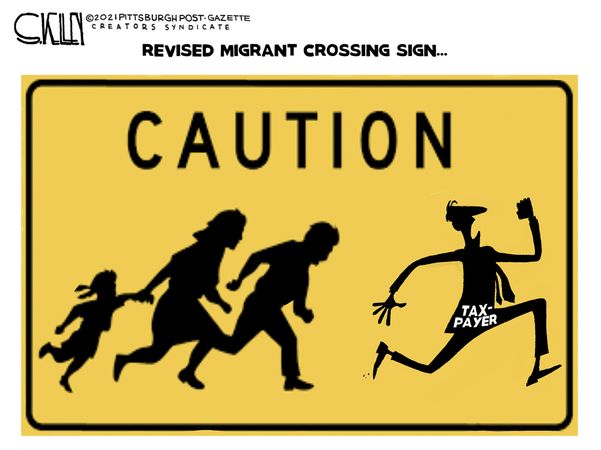Did they arrive in chains?
Didn't think so.
Many of you know they were “entitled” to nothing. They were lucky to be allowed in. And still they came.
They had to pay their way from day one — or out they would go, back to wherever they started.
No one was allowed to enter who would be a “public charge.” If an immigrant did not have a verifiable source of income, they were required to have a family member sign a personal guarantee that the sponsoring family would cover any cost.
America was letting them in, and that was enough. The American taxpayer certainly was not about to pay for them, too, and nobody expected them to.
Yet many became successful in America. Italians and Germans and Poles and Chinese and Japanese and whatever else. They faced discrimination, closed doors, and workplace prejudice. And they overcame it, or they were on their own. They learned English because they needed to, or they condemned themselves to a ghetto with limited opportunities for the rest of the lives. Most apparently learned the language of the nation that let them in and were grateful for the chance.
Contrast that with many immigrants of today, who don't even obtain permission to enter another people's home and admit they're only here for the money.

Didn't think so.
Many of you know they were “entitled” to nothing. They were lucky to be allowed in. And still they came.
They had to pay their way from day one — or out they would go, back to wherever they started.
No one was allowed to enter who would be a “public charge.” If an immigrant did not have a verifiable source of income, they were required to have a family member sign a personal guarantee that the sponsoring family would cover any cost.
America was letting them in, and that was enough. The American taxpayer certainly was not about to pay for them, too, and nobody expected them to.
Yet many became successful in America. Italians and Germans and Poles and Chinese and Japanese and whatever else. They faced discrimination, closed doors, and workplace prejudice. And they overcame it, or they were on their own. They learned English because they needed to, or they condemned themselves to a ghetto with limited opportunities for the rest of the lives. Most apparently learned the language of the nation that let them in and were grateful for the chance.
Contrast that with many immigrants of today, who don't even obtain permission to enter another people's home and admit they're only here for the money.

